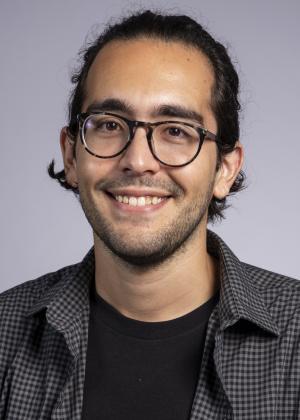Making Discoveries Together
“To understand addiction, I thought I needed biology and chemistry, but it turns out I also needed a lot of psychology.” – Roberto Cofresí
University of Missouri post-doctoral researcher Roberto Cofresí began his education in Austin, Texas. He majored in biochemistry as an undergraduate, and went on to earn a PhD in neuroscience. He aimed his research career at addiction because of a life-long interest in the topic stemming from his childhood in Puerto Rico. “I come from a small town and growing up I saw the negative consequences of alcohol abuse in people and the community around me.” Cofresí said.
Cofresí recognized the complex nature of addiction early on. He decided he wanted his research to go beyond chemical responses in the body. Alcohol as a drug is “intimately tied to human history.” He wanted to explore why it is so important to us as a species, and how those factors affect addiction.
Understanding ‘cues’ became the foundation of his work on alcohol addiction. Cues are the events or sensory stimuli we perceive during certain activities, and our brains notice and learn them as patterns. When the brain encounters those patterns again, it generates an expectation of what will happen next. For alcohol addiction, cues could include the sight or smell of a beer, the white noise din of a crowded bar, or the sound of a bottle opening. Once the brain associates these environmental patterns with drinking, exposure to them creates anticipation, desire, and an urge to drink: a craving.
However, Cofresí’s work was limited by the nature of his research. He found it both costly and time-consuming to find solutions for people struggling with addiction using traditional animal research models. The slow progress can be discouraging, and made worse because, “there is just not a good pipeline from animals to human laboratories,” Cofresí said. “I started getting very concerned that the likelihood it would help people was low. The traditional research methods have these high hopes and promises, but there’s such a long time between a discovery in non-human animal models and its testing in humans that it is hard to tell whether any given discovery will actually help people.”
Cofresí found his answer at MO-CARE.
The Missouri Center for Addiction Research and Engagement (MO-CARE) and its comprehensive approach to discovery works to transform addiction research. MO-CARE, housed in the Department of Psychological Sciences in the College of Arts and Science, is a multi-disciplinary center focused on research, student training activities, and engagement related to understanding and preventing addictive behaviors and addressing this public health crisis. In MO-CARE, Cofresí saw an opportunity to combine his experience in basic science research and his psychologically-oriented approach to earning his PhD to pursue interdisciplinary answers to the puzzle of addiction.
Coming to Mizzou and MO-CARE has elevated his research, with a “deep dive into human psychology of alcohol use” shaping discoveries on how to manage or modify the way people respond to alcohol-related cues. This integrated approach is part of MO-CARE’s changing model of research. The predominant modern research structure is independent, siloed, and focused on one’s own personal work. MO-CARE changes that to a collaborative model and a team science approach. They create and support hubs of researchers from multiple disciplines that leads to making discoveries together.
MO-CARE also works to integrate of all levels of learners. Researchers rely heavily on undergraduate assistants to do day to day lab work. Working in an environment with strong graduate students and post-docs provides them with early hands-on research training. These same students who contribute to research early on are then more competitive applicants for graduate studies or industry work. Post-docs, too, find enhanced opportunities through MO-CARE because of their ability to reach for independent inquiry with the safety net of established mentors.
As for Cofresí, his time with MO-CARE has deeply influenced where he sees himself in the future. “I would rather continue doing science and making discoveries as part of a bigger group of people,” he said. When asked about next steps, he replied, “exposure to psychological science and its methodology gives me newfound appreciation for how mental health providers can actually help people, and how working together gets us there.”
